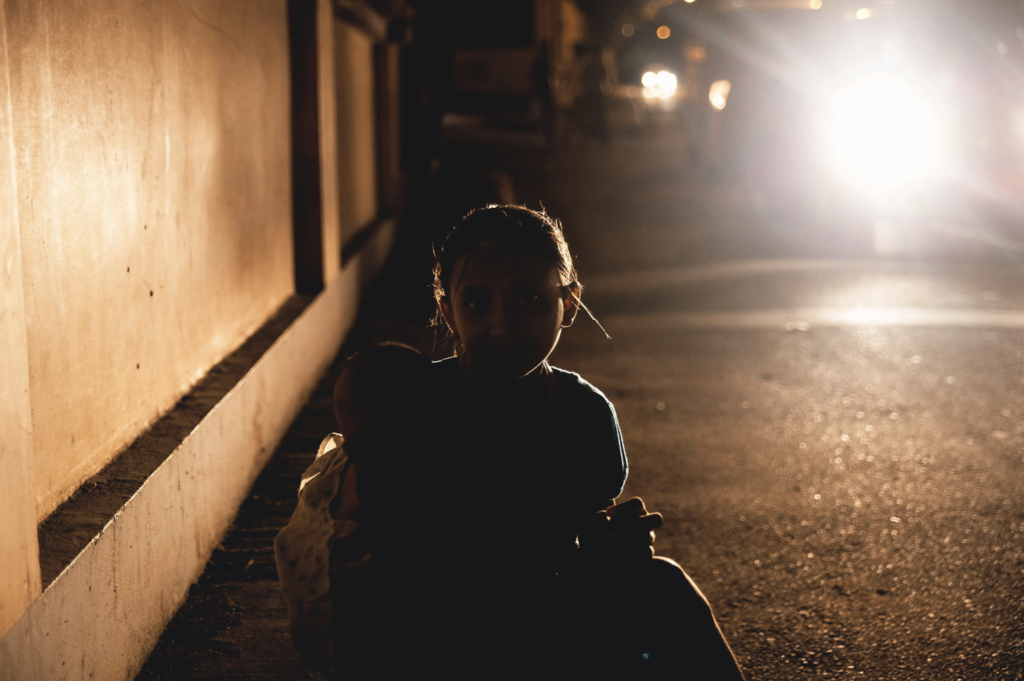“If there has been one silver lining to the COVID-19 pandemic, it’s been the lowering of human trafficking levels in Thailand.”
That is what our director of operations in Asia, Pat, had to say about the influence of COVID on trafficking in his area of the nation. In this area, sex tourism is such a common practice that trips may be booked through an agent, and in each town visited, a new partner is waiting.
In Pat’s city of residence alone, there are dozens of organizations dedicated to anti-trafficking efforts, yet business continues to boom in non-COVID seasons. A grey-haired man entering a motel arm-in-arm with a 15-year-old girl is a common sight, and it is estimated that at any given moment of the day, at least 30,000 sex workers are available for hire.
But how they arrived at this stage in their lives is more complicated than some may think. For many women, the decision is not as simple as choosing prostitution or having no alternative means of income—in fact, for many, it’s not a decision at all.
It’s not unusual for “factory brokers” to visit a village and recruit women for legitimate factory jobs in the city. They will give the parents a dowry for them to allow their daughters to work in a sewing or plastics factory, and the daughters leave under the impression that they are helping support their family. Once they arrive in the city, however, they often discover that their wages aren’t enough to pay a monthly rent, much less send funds home to help their parents. Stranded in a new city without a support system, it is at this point that many women search for additional ways of earning income but, without formal education or training, the most accessible and highest-paying occupation available to them is prostitution.
Once they begin earning money in this way, they don’t feel that they can return home in case questions are asked about their jobs, but they also can’t quit because their parents would then be responsible for paying the brokers back for their dowry—a sum very few can even fathom affording. In this way, trafficking occurs not by direct force, as we often see it depicted in the media, but as a result of financial and social manipulation.
Pat elaborated, “It’s situational trafficking. In this culture, it is the women who are expected to take care of the parents as breadwinners. They’re just trying to keep their families fed and, to them, it is honorable because they’re caring for their elders. These young girls don’t want to shame their families by admitting how the money is being made, so secrets get involved and relationships are distanced, removing their options to escape the trade. They often don’t return home until they’re dying from AIDS and want to say goodbye.”
For non-locals, there are other ways of being coerced into trafficking rings.
Hundreds of refugees and asylum seekers who cannot afford official paperwork or the return tickets to their home countries wind up unwilling illegal immigrants, unable to work official jobs. To feed their children, many turn to the only accessible market for migrants—the sex trade. In Pat’s words, “High rises and skyscrapers in the city center are basically glorified refugee camps because of how many people are ‘servicing’ businessmen in manipulative relationships.”
Sometimes it’s not manipulation, though. Some are intentionally peddled by their parents. One Send Relief partner in a neighboring nation shared her heartbreaking experience with a teenager at our safe house. Our safe home partners had rescued her off the streets and were helping her learn a vocational trade when her father arrived and demanded she leave. He had already accepted money from a “john” to buy her and, because she was under 18, our partners could not legally keep her without her parents’ consent without being accused of kidnapping. Though she had become a fervent believer in her time at the home, she had no choice but to leave with her father and return to the trade.
Our partner commented, “If only people would realize others aren’t for sale. This has been a problem since the beginning of time. If you look in the Old Testament, women were used for objects even then. The more people are aware and observant in places like nail salons and massage parlors, where women are often trafficked, the more we can investigate these situations. We need to look out for these girls who can’t speak English or are being treated as subservient in their places of business—if you suspect someone is being trafficked, please ask questions.”
To learn more about human trafficking and commit to prayer for these heartbroken women, download our 30-day prayer guide.
Published February 23, 2021
